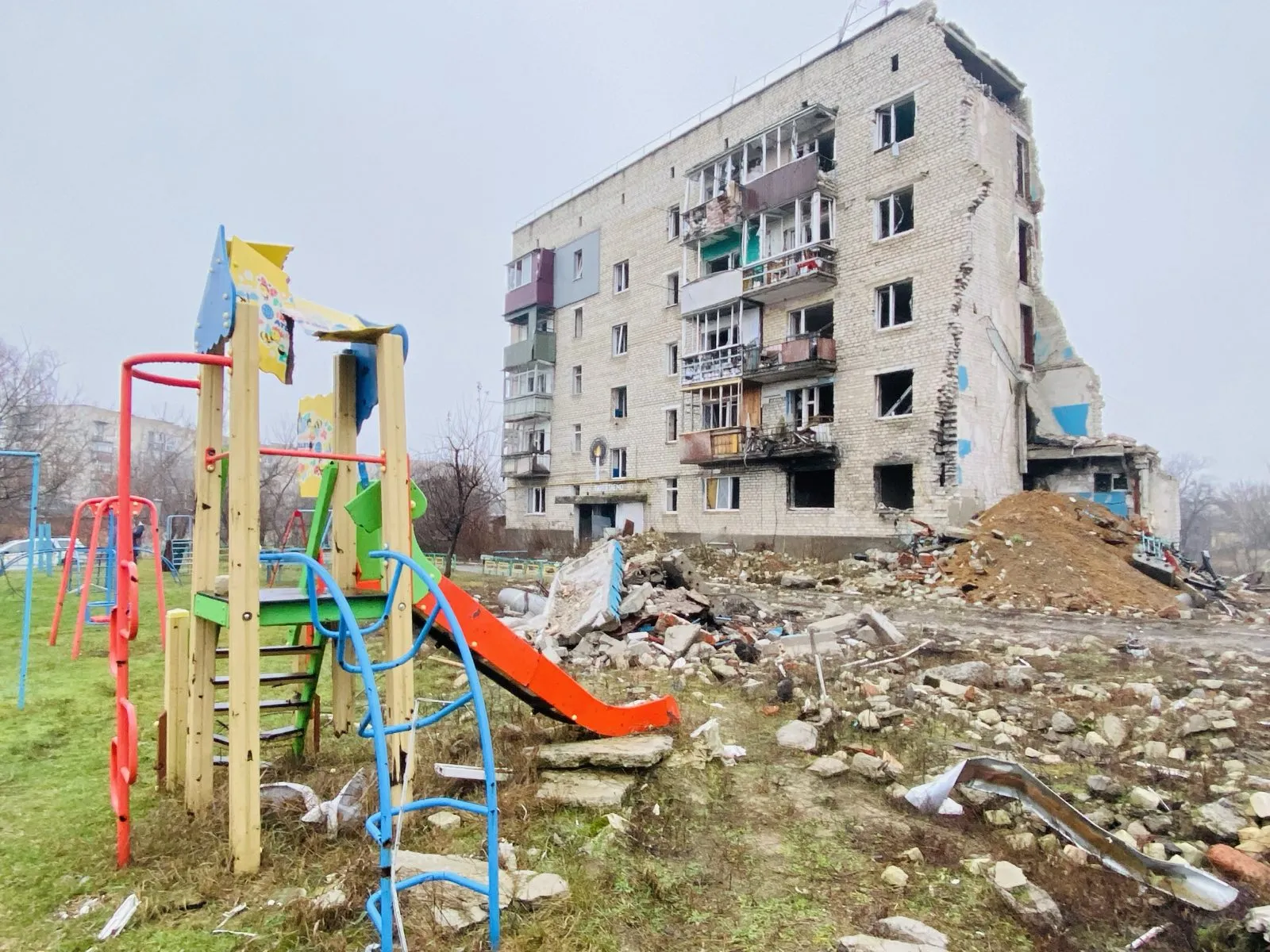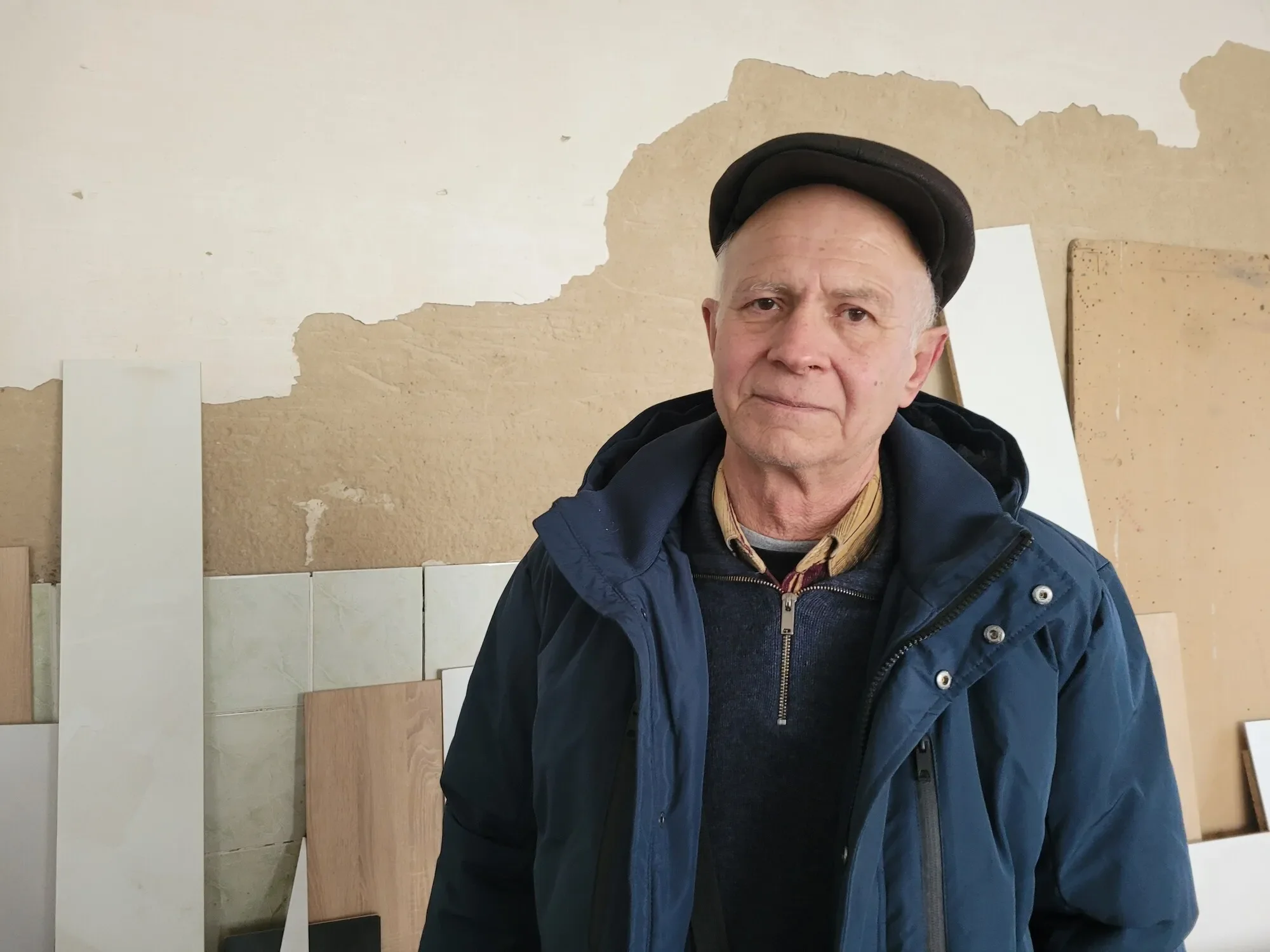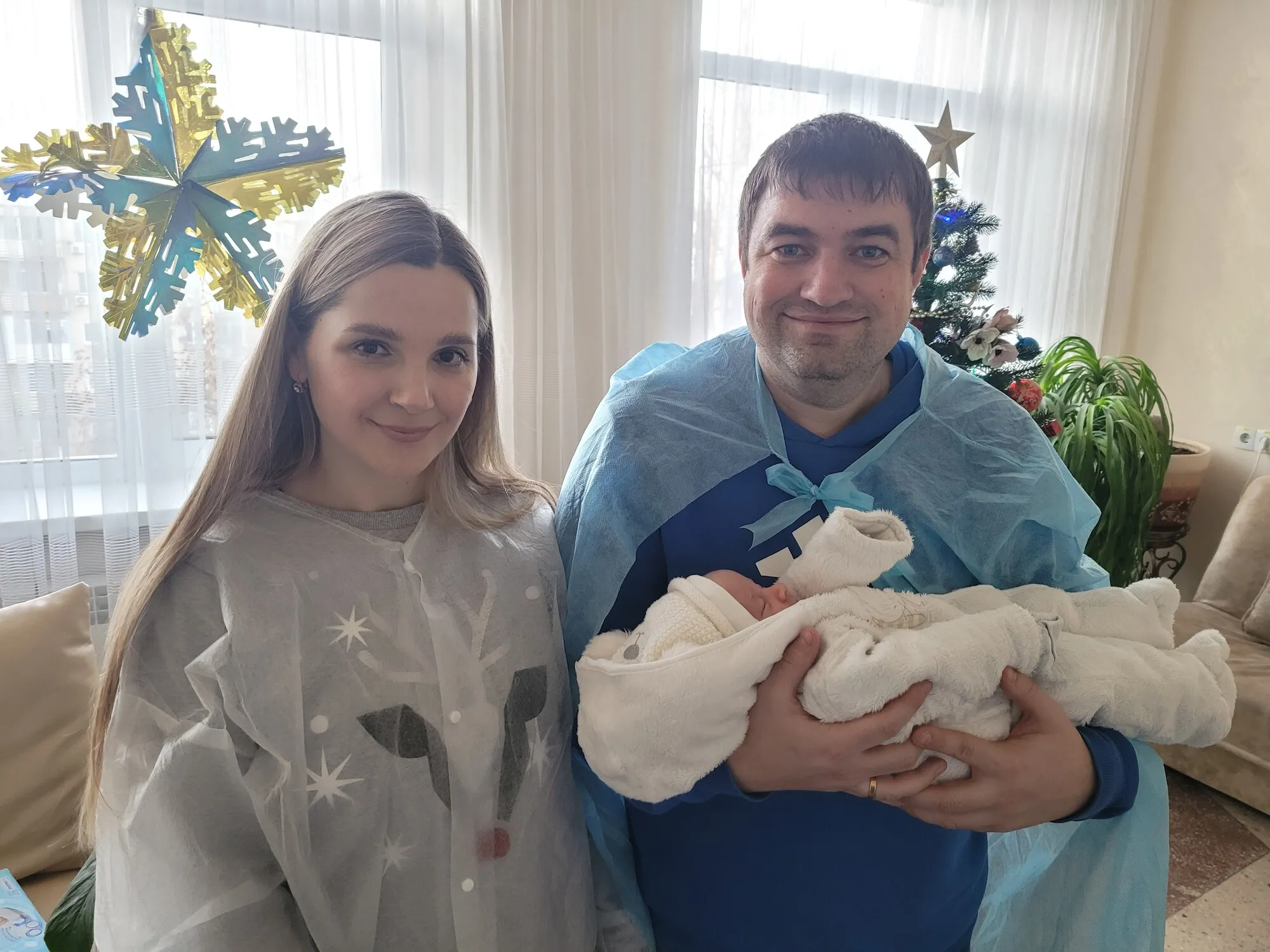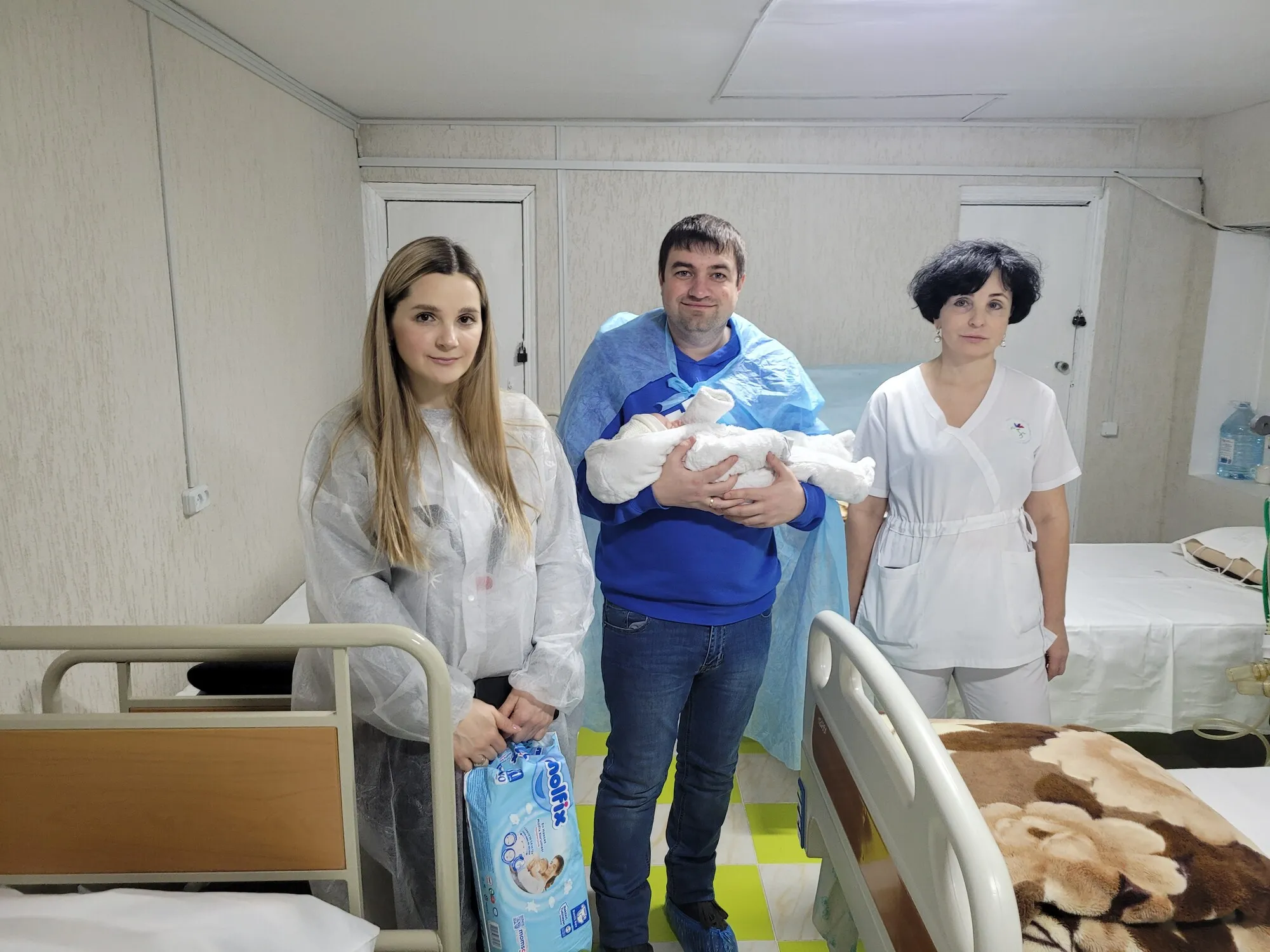Those who remain within the country lead lives of survival, coping with bombs and blackouts, living in unheated buildings, and constantly struggling to get enough supplies to last another week. Here are a few of their stories.

A destroyed residential building in Izium, Donetsk Oblast, Ukraine. All photos: Sarah Easter/CARE
A destroyed residential building in Izium, Donetsk Oblast, Ukraine. All photos: Sarah Easter/CARE
Those who remain within the country lead lives of survival, coping with bombs and blackouts, living in unheated buildings, and constantly struggling to get enough supplies to last another week. Here are a few of their stories.

“My life is a lottery,” says Vasyl, 66, describing the reality of war for those who remain or were left behind in areas with heavy active fighting. Every time Vasyl leaves his house in the southern Ukraine city of Kherson, he does not know if he will come back alive, and when he comes back if his house is still as he left it.
“We only go out for short distances and only if it is absolutely necessary,” he continues. “Necessary,” for him, means that he is in need of food, water, or humanitarian aid.
“Nowhere is safe,” he says while a window-vibrating explosion echoes in the distance. “Nowhere you can hide, the war will always find you.”
Nadia and her husband Vicheslav were able to flee to Odesa from their home in Kherson.
“We could not survive at home anymore,” Nadia says.
Now they welcome the youngest member of their family: daughter Myroslava. She is Odesa’s first newborn of 2024, having been born at 2:30 a.m. on Jan. 1.


“Odesa was heavily shelled at that time, and we were really scared when I started having contractions, but the hospital staff took very well care of us,” Nadia says. “We immediately went down to the shelter.”
She lay on a bed in the dark corridor of the bomb shelter, while her husband held her hand.
“The explosions were really close, but for her I tried to show no fear,” Vicheslav adds.
Nearly 2,000 mothers gave birth in this maternity ward in 2023, while 12,000 mothers were treated. When there are air strikes, the hospital staff evacuates mothers to the basement which is fully equipped and can also provide surgeries. For blackouts, which are common, there are three generators that cover their needs.
CARE supports the hospital with a partner, providing essential materials and training for the staff. Myroslava was born healthy and without complications.
“We are lucky,” Nadia says. “I cannot even imagine how other pregnant women who are still in Kherson do it. There is no infrastructure left and no medical facilities.”
There are no safe spaces left in their town. “The soul has left the city,” Vicheslav says. “Kherson used to have so many children playing on the streets, but now they are growing up in basements.”
Iryna, 58, sits on an old chair in a broken elevator shaft with her knitted hat and big jacket while waiting for the explosions to stop. The temperature is about 6C (43F).
“It is cold in our apartment,” Iryna says. “We did not have any heating for the last two weeks, because there is no gas or electricity in this part of town.”



Temperatures hover between 2C (36F) and 6C (43F) in the homes of most Kherson residents, but winters in the region are harsh and temperatures can drop even further.
“When there are no explosions, I walk up and down our yard to stay warm,” Iryna says.
The sleeping bags she received at a distribution from a CARE partner this day are helping her and her family to keep warm. “I am very grateful for the support, because we would not survive otherwise,” she says.
A few months ago, her apartment building was hit directly by a missile. “I did not know what to do,” she recalls. “I heard the explosion and then saw the fire; heard the screaming and crying of my neighbors. We were very lucky to survive.”
Iryna then quickly excuses herself because her phone is ringing. It’s her husband. He is worried that she has been gone too long and checks if she is injured and needs help.